Spatialize’s sublime musical expression is a result of early exposure to his grandmother’s piano, discovering the digital keyboard & the power of sampling, being a bassist in bands, and last but not least “being left to his own devices” (literally). All of these constituted vital parts of his journey and germinated into a vast body of work that displays his signature open, organic, psychedelic sound.
The two albums featured here are ‘Squaring the Circle’ which consolidates some of his earlier works and ‘Searching for the Source’ – a nod to the eternal search for meaning that mankind has embarked upon. The UK-based artist also shares several gold nuggets of wisdom from his three-decade-long experience as a musician, and gently confirms the fact electronic music can really flow from the heart.
Interview by Mister Mime on 12/10/21. Edited by Shantiago.
How/When/Why did you choose the artist name ‘Spatialize’?
You might think that it’s a grand reference to some complicated audio geek technique of spatializing audio. But no. I have never really been quite that technical and had never even heard of it. An old friend of mine Jez Plester was playing a video game and there was a character called “The Spatializer” and we thought that might make a pretty cool name for a project. We both liked it though so we agreed that the first person to put together an album could use it. I got there first in 2004 but Jez played in the live version of Spatialize for a while in the early days, doing on stage space bubbles and sequencing, so we’re square I reckon. It turned out that the name Spatialize fits quite well the open, organic sound of the music. Or perhaps the name started to influence the music? P.s. everyone consistently spells it wrong at festivals, and then tell me that I’m spelling it wrong.
“Squaring the Circle”; “Searching For The Source”: What do they mean? Are there any stories behind the naming or making of the tracks/albums that you would like to share?
Squaring the Circle is a bit of a play on words from the term “Closing the Circle”, which means to wrap things up tidily. After releasing quite a lot of albums over the years it seemed fitting to release some of my earliest material, which I thought still sounded pretty good for the basic equipment I was using.
On one level the title “Searching for the Source” is a bit of a nod to the eternal search that we are all on, searching for meaning in this topsy turvy world. But mainly it’s a poetic little phrase that trips nicely off the tongue. Alliteration with some spondaic weight and a little dactylic energy that seemed to fit in with the communications tower image.
The track “Sun Dogs” refers to a couple of dogs that we were looking after for a friend who was suddenly taken ill. They were Spanish rescue dogs, much accustomed to the sun, with very thin coats and living in the middle of a cold and grey English winter. Whenever the warm sunlight shone through the patio windows they would literally follow the tracking path of the sun around every corner of the room, from right in front of the patio window, onto the sofa, down to the floor, up onto the table and over to the chair. By sunset, it was quite amusing to see 2 large and gangly Podengo dogs perched awkwardly on the edge of a chair vying for the last of the rays.
Would you like to speak a bit about the artwork for these two records?
My usual approach with artwork is to buy an image on the web and then allow a little time for an album name to occur to me that fits with it. I did that with ‘Searching for the Source’. ‘Squaring the Circle’ though was different in that I already had the title in mind, luckily found something almost immediately to fit with it. Really I should work with graphic designers more collaboratively, but by the time I’ve written an album and mastered it, I am usually just keen to crack on and release it.
Can you tell us about your musical background? What was your first exposure and tryst with music and how did your journey begin?
My very first musical memory is playing my Gran’s piano when I was only a few years old. I did learn to read music quite basically but even early on I was more interested in just playing improvised dreamy fluid arpeggios with the sustain pedal down full blast. That swelling effect of a real piano played with sustain is probably where I started to pay attention to sound and the effect that it could have. I just liked being inside that space. I suppose I carried on that enveloping approach to sound into Spatialize a bit.
We could never have a proper piano in our house so I had a digital keyboard instead and that probably got me more interested in the sounds than the pure keyboard playing. I discovered sampling at the quite young age of 16, buying an Akai S01 with 30 seconds of mono sampling. It was a natural progression at that time, though expensive, to add an Atari for sequencing, mixers, effects, 4 track and more synths. The late 1990’s was a time when electronic music was blending with instrumentation and I ended up as a studio hub for other friends/musicians, writing the core grooves for other musicians to play over. Then suddenly one day all the people I knew in my area drifted off to this and that and I thought, well I’ll fill the gaps with my synths and samples. I discovered that I enjoyed being left to my own devices (literally haha), and that was sort of the germ for my own music.
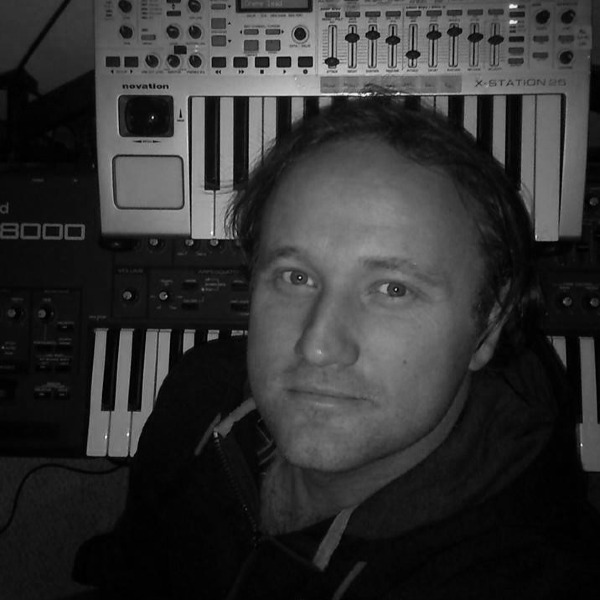
How did you develop your signature “Spacey Organic Electronica” sound?
I realised that my favourite music was nearly always a solid groove with a syncopated bassline and a lot of atmospheric space on top. I always preferred the jam sections of tracks where the band cut loose and really spaced out (check out Sunscape from Live Underslunky by Ozrics) instead of the more structured parts. So looking back it seems natural that I would look to make music in the style of the music that I loved. The organic element also comes from the fact that I have played bass in bands and one of the great joys in music for me is locking down a bass line with a drum groove.
The track “Scarlet Sundown” from Squaring the Circle was probably an early blueprint for that sound; spacey and loose semi-improvised parts swirling with atmospheres over a looped insistent acoustic drum groove with a nice (synth) bass line. The track came together really effortlessly one early evening after coming back from a day in the Peak District with a beautiful sunset pouring into the room while I sat inside this swirling atmospheric musical space. Even electronic music can really flow you know from the heart. You don’t have to spend months on every track working from the head.
What were some of the production techniques, processes, workflows, tools or instruments that you believe are instrumental to your sonic identity?
There’s something about the blend of a digital synth with a nice juicy analog synth. It doesn’t really matter in a sense whether it’s a Korg M1 with a Bass Station or Roland D50 with a Sequential Pro-One. The digital and the analogue sounds just compliment each other in a very satisfying way, whether it’s outboard equipment or vst. I tend to think of music in sonic layers that fill the audio spectrum so it’s finding and understanding how each synth fills that sonic spectrum. The exact synth that filled those gaps has changed over time, but I’ve usually got an idea of which synth to reach for to achieve a certain sound.
I think I would be a bit lost without my bass. You won’t hear real bass on my early recordings as I would write a melody on the bass and then it into the sequencer on a keyboard. This was because I always seemed to get a better sound from a synth. However more recently I sorted that all out and now play all my basslines in on my Fender Mexican Jazz. There’s something about the way that you approach a bass line on a bass that works better than on a keyboard. Mainly because it’s er… a bass. To be honest I think I would be quite happy with some acoustic drum loops on a sampler, a bass guitar, a D-50, a pro-one and a Tascam 8 track.
Simplicity, creativity and originality in electronic music: What are your thoughts on this? Especially in the light of modern music production often being portrayed as an endless ocean of VSTs, plugins, ‘tricks’, and so on, where it’s quite easy to lose the main essence of music itself. How can we use machines to bring out our true sound?
This ties in a bit to sonic identity and I think the answer is to not have too many synths, spend some time with whatever synth you have and work up your own presets. It’s probably a bit of a lost art nowadays amid the endless lineups of virtual synth and mind-blowing libraries. I find myself doing it a bit less these days, but when I started off, upgrading the factory synth presets with your own sounds was a pretty essential step. When I am creating now I usually find that my own presets will somehow fit better than the factory presets. Not because my sounds are better or anything; if anything the factory presets are way more interesting and complicated, But I think there’s something to use a sound that I have already tailored to my own ear first. Having a set of your own presets essentially simplifies things and speeds up the creative flow.
Exclusively using virtual synths can also slow down the creative workflow a bit too I find. Although I think they sound great and you can control them quite well with controller keyboards, it does often feel a bit like painting through the letterbox. The main issue is that I find that I am more likely to leave a vst synth midi part flat with no tweaking, or I spend a lot of time setting up interesting LFO’s and modulation which mechanically floats in and out of the music. A knobby hardware synth meanwhile encourages me to jam out ideas, get into that musical flow and use my hands to tweak instead of modulation, which adds a more human touch and often more quirky results. Recording directly to audio also really helps speed things up and guards against leaving too many options open as midi. The other straightforward answer to this is to learn to play an instrument. It liberates you from the tech a bit.
From a stylistic, cultural and commercial perspective, can you share your views on how you feel the face of Electronic music, particularly in the downtempo/psy/chillout and their related subcultures, have changed or evolved since the past few decades?
Back in the nineties I think the spacey music scene was more focused on musicians who were interested in getting in bands and performing on the live gig scene. And scenes and club music spawned around them and their geographical locations. Now the scene is essentially club based around a core rotation of individual producers and dj’s with the odd splash of live music. The smoking ban in the UK changed the face of chill-out music a bit too. Once upon a time, it was great to sit in the chill-out room, spark up a fatty boom batty and listen to some mellow music. Since the ban though the chill-out music has become more muscular in a bid to attract people into the room, like a second main room. There’s nothing wrong with that as such, but I think the more sensitive and flowery ambient music has been crowded out a bit by the beats.
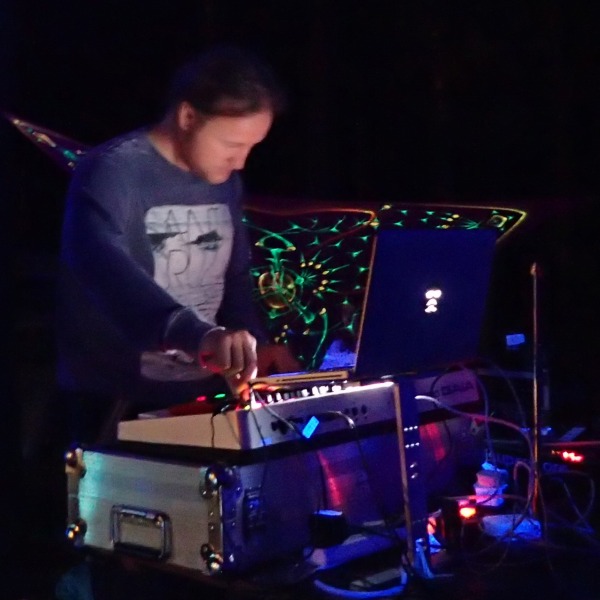
Who are the musicians/artists/bands that influenced you throughout your journey?
Ozric Tentacles are the main one. Absolutely my favourite band. So strong, so spacey. There’s such a sense of freedom in their music. I was so inspired by them and that’s probably why I favour real drum sounds and proper bass lines. The whole psy-chill scene, whether it knows it or not, I think grew out of this music at some level. More recently I’ve been listening to a lot of Jah Wobble. I just love his simple and insistent bass lines.
Who/what are some artists/people/things from other art forms, disciplines or walks of life that inspire you?
One of the most inspiring and interesting things I have come across in recent years is the tv show Breaking Bad. Despite the grim subject matter, the narrative of watching a man shed his fear of life, which was inspired by his looming death, is inspiring. I think he found that life wasn’t as rigid as he believed and that he could really take control of his own destiny, even though it all went very wrong. It’s also interesting how just one decision can lead to an endless string of ramifications, almost like watching Walter White’s Karma in action. He got onto a ride that he simply couldn’t get off in the end. Really fascinating and to me, proper art.
What do you like to do apart from music?
I love to go out for a good hike. The south-west peninsula of the UK where I live is really a very beautiful place and there are a million places to explore. Years ago I loved backpacking (Asia, S America etc) and cycle touring. It’s been a while since I backpacked now, but I am looking forward to hopefully travelling again once the whole Covid thing has died down.
What advice or guidance would you give to new and upcoming musicians, artists and producers?
There’s a deep satisfaction in choosing art or a craft, really applying yourself to it and becoming good at it. I actually don’t think it matters what it is. It could be skateboarding, pottery or music production. The more you apply yourself to something the more satisfaction you get. I would probably try to sniff out if you have a mild form of obsession about something and harness that.
More specifically on music production, one thing I see quite often in young producers is an obsession with production, like compression/mixing etc. My advice is to obsess instead on getting great core sounds and solid sequences before you go too deep into compression and EQ. Allow your sounds to fill the sonic space as naturally as possible and don’t force ideas. Then the eq or compression becomes a sweetener rather than a fixer. The irony is that a lot of the sound sources in DAWs will already be high quality or compressed and may not need too much further colouration, apart from gentle saturation which mildly distorts and glues like an outboard mixer. It’s probably an old fashioned approach in the age of hyper-compressed and limited in your face sounds but it’s a good way of getting smooth mixes that have enough dynamic in them that they sound good when you increase the volume. Also, listen to a wide range of music. Don’t get stuck listening to the music in your own genre/ scene. Personally, I listen mostly to world music (yes it’s a broad term), space/prog rock and IDM.
You can follow Spatialize on:
https://spatialize.bandcamp.com/album/searching-for-the-source

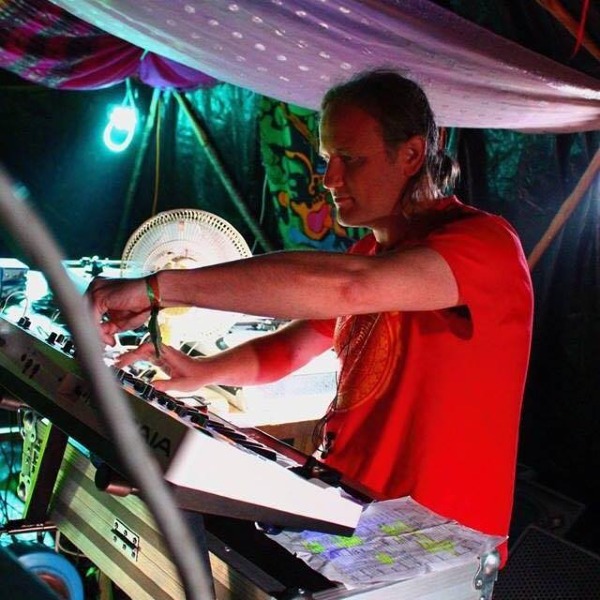
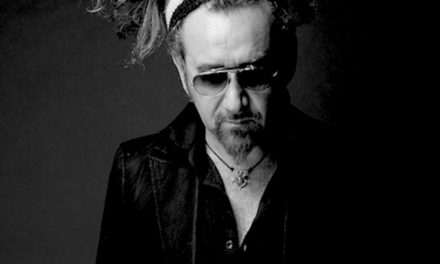
![[interview] with Dj Lorn](https://www.psybient.org/love/wp-content/uploads/Lorn-Ancient-Realms.png)
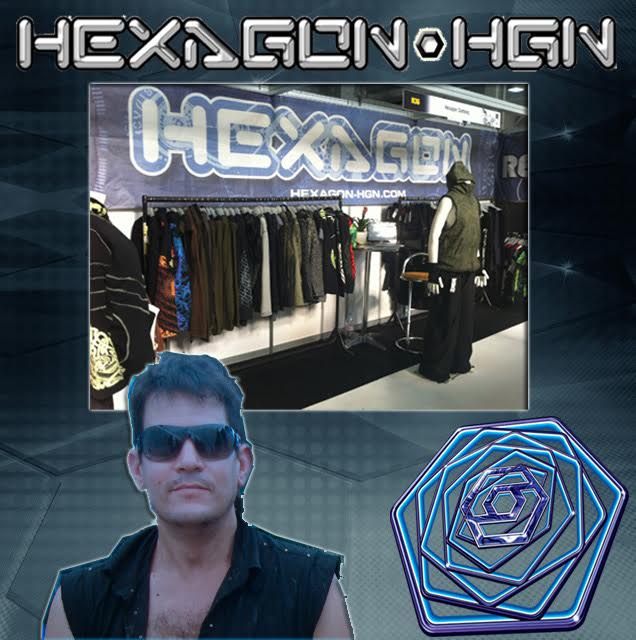
![[interview] 5 questions with Gabriel Le Mar (Saafi Brothers)](https://www.psybient.org/love/wp-content/uploads/Gabriel-Le-Mar-Saafi-Brothers.jpg)
